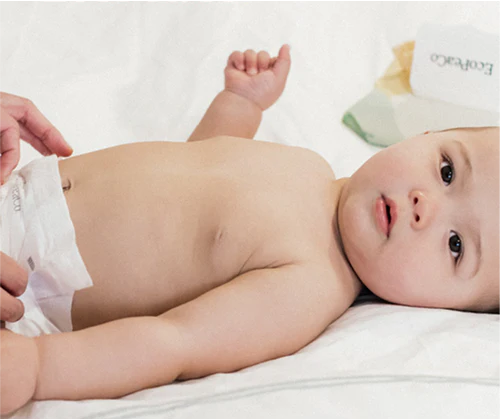When Can I Start Using Baby Products On My Newborn?
You may wonder when you can put lotion on your newborn or when to use soap for newborns in general. Luckily, we’ve got plenty of skin care tips for newborn babies.
Besides the usual petroleum jelly, there is also an influx of skincare products on the market for babies. Putting lotion on your newborn after bathing in warm water is crucial to keeping everything from your newborn’s feet to the diaper area moisturized. The same goes for sponge baths.
That said, there is a “right” time to start using baby products on your newborn, and before 4-6 weeks of age, it’s best to use caution when applying things like lotion and soap to newborn babies.
Do Newborns Need Lotion?
When babies are born, they are coated in an oily white substance called vernix caseosa, which protects their skin in the uterus. The vernix caseosa is usually wiped or washed off after birth, but losing vernix can cause the skin to peel during the first week of life. The peeling is normal and goes away on its own.
Even little vernix caseosa on a baby’s skin can be beneficial beyond pregnancy. Besides moisturizing the skin and preventing dryness and cracking, there are more benefits to leaving vernix caseosa on the skin of newborns:
- Its antimicrobial properties help babies ward off infections they may contract through the skin during/after delivery.
- It regulates the body temperature of newborns.
- It accelerates the healing of skin wounds that can happen at birth.
When to Use Soap On a Newborn
There’s a good chance you’ll use soap on a newborn before lotion. Experts say only to use plain water for newborn babies. Around 4-6 weeks of age, you can begin using small amounts of an unperfumed baby bath. Large doses could potentially disrupt your baby’s skin barrier.

How to Choose the Right Lotion For Your Newborn
Choosing the right lotion for your newborn, or the right baby products in general is about avoiding common irritants like fragrance and upholding the skin barrier to stave off extremely dry or infected skin. Keep the following points in mind while you shop for products for your newborn.
- Discuss options with your doctor. If your newborn has dry skin or signs of a condition, your pediatrician will be equipped to advise you on what products to buy to ensure your baby's safety.
- Check the ingredients label. Once you understand what can irritate your baby’s skin, scan the ingredients of any product you buy.
- Choose mild formulas over fancy. Unscented baby products are generally the safest option since potent cosmetic ingredients or fragrances tend to contain high levels of chemicals that can irritate.



